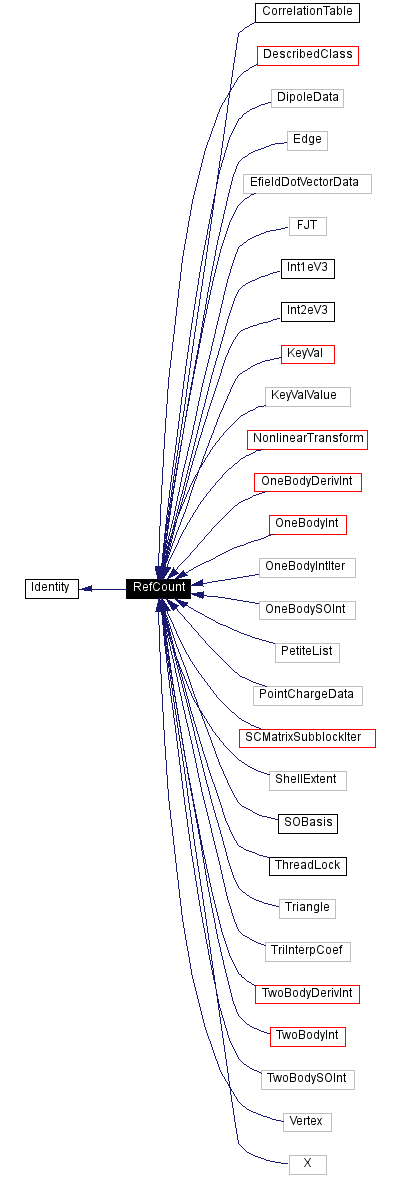
#include <ref.h>
Inheritance diagram for RefCount


Public Methods | |
| virtual | ~RefCount () |
| int | lock_ptr () const |
| Lock this object. | |
| int | unlock_ptr () const |
| Unlock this object. | |
| void | use_locks (bool inVal) |
| start and stop using locks on this object. | |
| refcount_t | nreference () const |
| Return the reference count. | |
| refcount_t | reference () |
| Increment the reference count and return the new count. | |
| refcount_t | dereference () |
| Decrement the reference count and return the new count. | |
| int | managed () const |
| Return 1 if the object is managed. Otherwise return 0. | |
| void | unmanage () |
| Turn off the reference counting mechanism for this object. More... | |
| int | managed () const |
| Return 1 if the object is managed. Otherwise return 0. | |
Protected Methods | |
| RefCount () | |
| RefCount (const RefCount &) | |
| RefCount& | operator= (const RefCount &) |
If multiple inheritance is used, RefCount must be virtually inherited from, otherwise references to invalid memory will likely result.
Reference counting information is usually maintained by smart pointer classes Ref, however this mechanism can be supplemented or replaced by directly using the public interface to RefCount.
The unmanage() member is only needed for special cases where memory management must be turned off. For example, if a reference counted object is created on the stack, memory management mechanisms based on reference counting must be prohibited from deleting it. The unmanage() member accomplishes this, but a better solution would be to allocate the object on the heap with new and let a smart pointer manage the memory for the object.
When using a debugger to look at reference counted objects the count is maintained in the _reference_count_ member. However, this member is encoded so that memory overwrites can be sometimes detected. Thus, interpretation of _reference_count_ is not always straightforward.
|
|
Turn off the reference counting mechanism for this object. The value returned by nreference() will always be 1 after this is called. The ability to unmanage() objects must be turned on at compile time by defining REF_MANAGE. There is a slight performance penalty. |